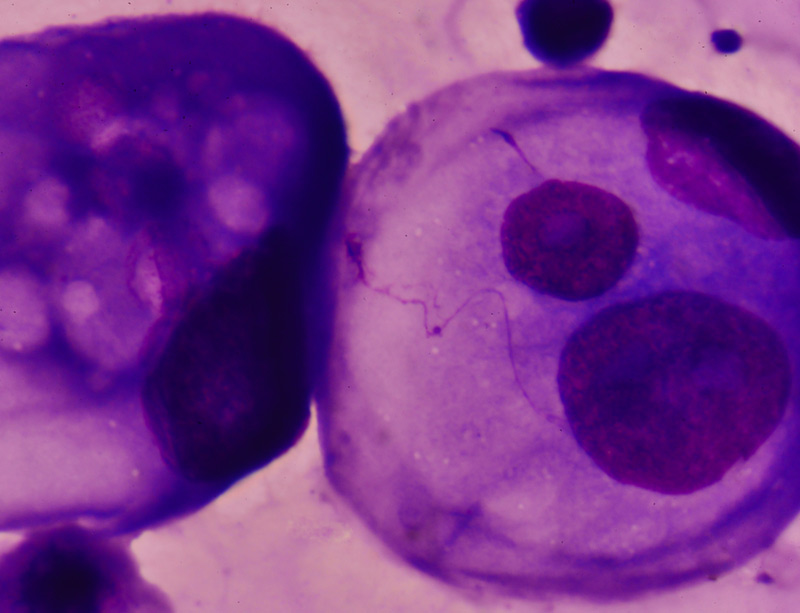Researchers Find Potential New Target for Mesothelioma Treatment

An international research team has identified a novel molecular target with potential to significantly improve future treatment of malignant pleural mesothelioma.
The recent findings could lead to a drug that targets key genetic inhibitors often preventing a patient’s own immune system from suppressing mesothelioma tumor growth.
Dr. Antonio Giordano, part of the collaborative research team, said the goal is reducing mesothelioma mortality with a combinational therapy that includes this new target.
“These findings help us define molecular mechanisms that may be key to mesothelioma aggressiveness and progression,” Giordano told The Mesothelioma Center at Asbestos.com. “Knowing which pathways to target will help us improve treatments and patient survival. This is the starting point.”
Giordano, pathologist and geneticist, is the founder and director of the Sbarro Health Research Organization at Temple University in Philadelphia. He also is an internationally renowned professor of pathology at the University of Siena in Italy.
Oncologist Dr. Raffaella Pippa at the University of Navarra in Pamplona, Spain, and Dr. Silvia Boffo at the Sbarro Institute for Cancer Research are co-authors of the study.
The Journal of Cellular Physiology published the findings in December.
Clinical Trials Are Next Step
Giordano believes the recent findings will lead to future clinical trials, where a new treatment combination for mesothelioma may be developed.
Mesothelioma is a rare and aggressive cancer with no definitive cure. Standard-of-care mesothelioma treatment today remains systemic chemotherapy, which has not been especially effective.
Less than a third of mesothelioma patients qualify for aggressive surgery, which also has seen mixed results.
Although the development of immunotherapy has shown promise with mesothelioma, it has been effective for only a small percentage of patients using it.
Most specialists believe it will take a combination of therapies — often personalized with genetics — to effectively combat mesothelioma.
“Combinational therapies are the most successful ones in targeting different aberrant pathways, and at the same time, leave cancer cells with no escape,” Giordano said. “Knowing which molecular pathways are activated in cancers like mesothelioma is necessary to develop these cocktail therapies.”
Research Focused on PP2A Protein
Using mesothelioma patient samples, the research centered around the protein PP2A, which normally would suppress the formation of tumor cells in the body.
Research found that two specific protein inhibitors, ANP32E and CIP2A, were significantly elevated in the tumor cells.
This led to the production of other inhibitors. The inactivation of the protein is a crucial step in the growth of the tumor cells.
The belief is that targeting ANP32E and CIP2A could stop, or at least slow, mesothelioma progression.
Years Spent Finding New Targets
Giordano’s cancer research for many years has focused on identifying novel targets and therapies at the molecular level.
He led an earlier study that showed how the drug pyrvinium pamoate — once used to fight infections of pinworm parasites — could impair the growth of mesothelioma tumor cells.
It also works by inhibiting a particular gene that encourages tumor cell proliferation.
“With the advances of cancer biology and artificial intelligence, depending upon genetic history and genetic mutation, soon we will know which is the right treatment,” Giordano said.